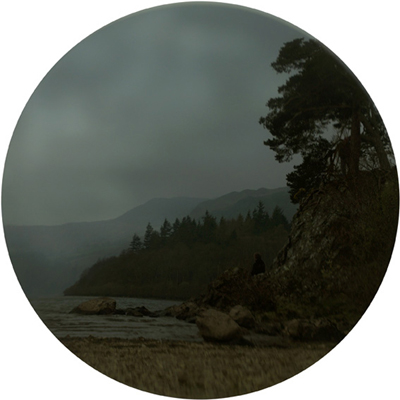
by Shaun Chamberlin | Jun 3, 2010 | All Posts, Climate Change, Cultural stories, Favourite posts, Philosophy, Reviews and recommendations
I got back from the Dark Mountain Project's Uncivilisation festival a few days ago, and while I could write about many of the aspects of that stimulating week, one thread it really tugged on for me was the role - the critical importance - of the arts in shifting the cultural stories that shape our future.
So today I would like to highlight a few musical artists who have inspired my personal journey, and to invite you to suggest a few artists of any kind who have brought something to your engagement with the global problematique, in whatever way, and perhaps deserve a little more exposure.
The 'headline act' at Uncivilisation was George Monbiot debating the usefulness of the Dark Mountain project with one of its founders. Sitting in the audience I was engaged by this - if rather frustrated by some of the arguments unvoiced or misrepresented - but then found myself profoundly refreshed to have my intellectual cogitations blown away by what followed. Immediately afterwards, Alastair McIntosh took the stage, and used the language of music to speak to the spiritual in us - to our connection with our homes, our land.
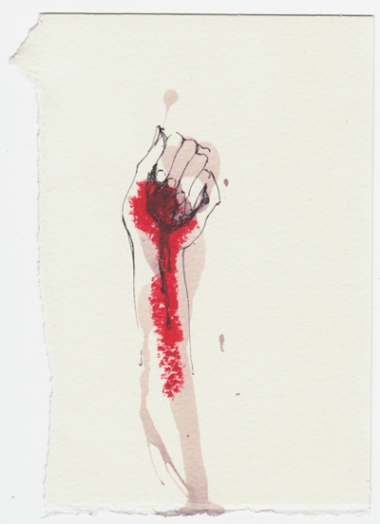 Maria Elvorith, ‘Red wine, Lipstick and the World in my hand’, 2009
The shift in energy in the room (and in me) was palpable, as we moved from our separate intellectual camps to what felt a unified sense of wonder and shared values.
Thinking back on this, I am put in mind of some insightful advice from the late Howard Zinn which I recently discovered and am endeavouring to embed into my outlook:
"Don't look for a moment of total triumph. See it as an ongoing struggle, with victories and defeats, but in the long run the consciousness of people growing. So you need patience, persistence, and need to understand that even when you don't "win", there is fun and fulfilment in the fact that you have been involved, with other good people, in something worthwhile."
The arts are so key to that fun and fulfilment, as well as to the growth in consciousness, that I feel the need to acknowledge some of my own inspirations...
Saul Williams - Act III Scene 2 (Shakespeare)
Ani DiFranco - Self Evident
My new friend Alex Fradera has already suggested adding this link to three folk songs on the subject of the credit crisis (though clearly none as well-sung as this one).
For me personally though, Nine Inch Nails' 2007 album, Year Zero, was the point where my musical interests collided head-on with my life.
The mysterious initial trailer video (above) contained the critical clue to send online fans worldwide spiralling off into an 'Alternate Reality Game (ARG)' set in a dystopian near-future ravaged by climate destabilisation and social breakdown. Without ruining too much of the fun for newcomers who want to explore, the Viability Index site gives one flavour of the world that music fans were drawn into, some parts of which are genuinely moving and disturbing. And drawing us ever deeper was the fact that a few of the tracks off the forthcoming album lurked in its depths.
I talked with people for whom the experience - and the music it uncovered - opened their eyes to the realities of our present, as well as to new ways of engaging with those realities. And for me it led to my work on the Superstruct ARG, which tried to expand on that success.
But that's another story. For now, I'll leave you with some of the art that has affected me, and look forward to discovering more through you.
--
Nine Inch Nails - Zero-Sum
Maria Elvorith, ‘Red wine, Lipstick and the World in my hand’, 2009
The shift in energy in the room (and in me) was palpable, as we moved from our separate intellectual camps to what felt a unified sense of wonder and shared values.
Thinking back on this, I am put in mind of some insightful advice from the late Howard Zinn which I recently discovered and am endeavouring to embed into my outlook:
"Don't look for a moment of total triumph. See it as an ongoing struggle, with victories and defeats, but in the long run the consciousness of people growing. So you need patience, persistence, and need to understand that even when you don't "win", there is fun and fulfilment in the fact that you have been involved, with other good people, in something worthwhile."
The arts are so key to that fun and fulfilment, as well as to the growth in consciousness, that I feel the need to acknowledge some of my own inspirations...
Saul Williams - Act III Scene 2 (Shakespeare)
Ani DiFranco - Self Evident
My new friend Alex Fradera has already suggested adding this link to three folk songs on the subject of the credit crisis (though clearly none as well-sung as this one).
For me personally though, Nine Inch Nails' 2007 album, Year Zero, was the point where my musical interests collided head-on with my life.
The mysterious initial trailer video (above) contained the critical clue to send online fans worldwide spiralling off into an 'Alternate Reality Game (ARG)' set in a dystopian near-future ravaged by climate destabilisation and social breakdown. Without ruining too much of the fun for newcomers who want to explore, the Viability Index site gives one flavour of the world that music fans were drawn into, some parts of which are genuinely moving and disturbing. And drawing us ever deeper was the fact that a few of the tracks off the forthcoming album lurked in its depths.
I talked with people for whom the experience - and the music it uncovered - opened their eyes to the realities of our present, as well as to new ways of engaging with those realities. And for me it led to my work on the Superstruct ARG, which tried to expand on that success.
But that's another story. For now, I'll leave you with some of the art that has affected me, and look forward to discovering more through you.
--
Nine Inch Nails - Zero-Sum
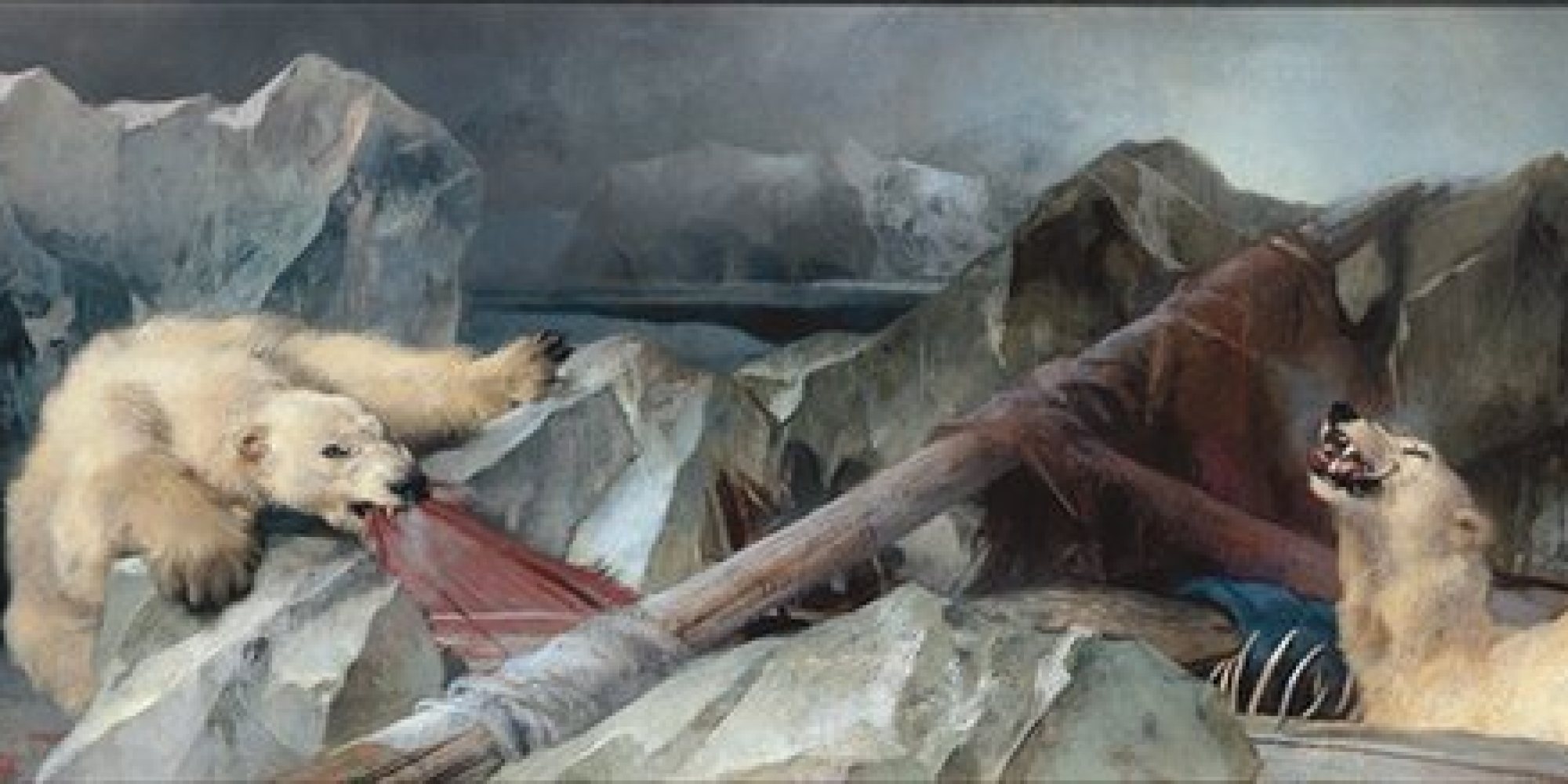 Sir Edwin Landseer, ‘Man proposes, God disposes’ 1864
Sir Edwin Landseer, ‘Man proposes, God disposes’ 1864
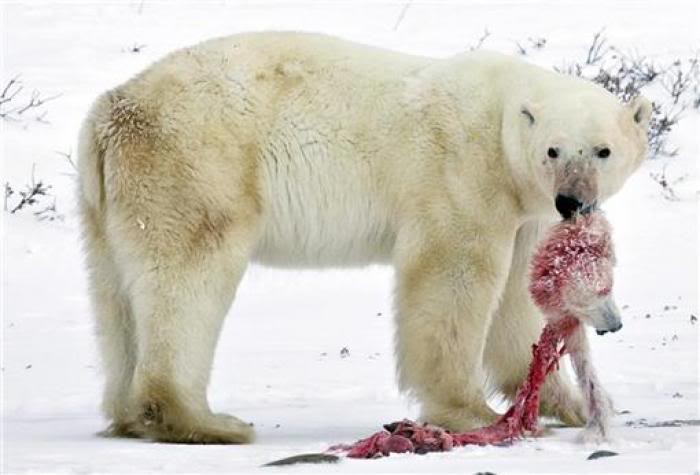 Photograph by Iain D. Williams, Canada, Nov 2009
---
Edit - March 2011: This is just too good not to add to this post:
Photograph by Iain D. Williams, Canada, Nov 2009
---
Edit - March 2011: This is just too good not to add to this post:
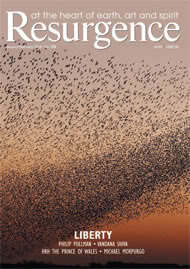
by Shaun Chamberlin | Feb 23, 2010 | All Posts, Cultural stories, Favourite posts, Peak Oil, Philosophy, The Transition Timeline
Below the cut is the text of my latest article for the highly-recommended Resurgence magazine. They asked me to tell the story of my own personal journey thus far, and how I ended up doing what I do. Thanks to Resurgence for permission to reproduce it here (and on my articles page).
---
Applied Philosophy
Don’t ask what the world needs. Ask what makes you come alive, and go do it.
---
For me, there was a definite moment when my environmental awakening began in earnest. I was studying philosophy at the University of York a decade ago when, out of the blue, I received an email from my father alerting me that “a long-term survey of oil and gas resources shows that demand for oil will exceed the maximum possible supply by 2010 and the oil price will sky-rocket”. This was followed by his (enduringly plausible) outline of the likely consequences – economic collapse, mass starvation and war.
I took a deep breath.
My initial reaction, like that of so many in their ‘peak oil moment’, was one of shock, rapidly followed by disbelief. I wondered how there could be near-universal silence on this issue if it truly had such vast implications, and tried to assure myself that ‘they’ would surely find some solution. Nonetheless, I resolved to look into it, partly in the hope of reassuring my father. Needless to say, what I learned wasn’t particularly reassuring.
As my studies came to an end, I quickly found myself with some appropriately philosophical questions to answer. The familiar post-university concerns of finding a way to earn some money, enjoying myself and caring for friends and family had to be balanced with two added factors – a sense that a ‘sound career path’ might not prove so sound in a civilisation that might be heading for the buffers, and an understanding that the world desperately needed all hands on deck if it was to have a future at all.
My attempts to discuss all this with my peers met with limited success. They reminded me that many people, both in our culture and around the world, are struggling to get by, and that I would need all the time I had just to look after myself and my family. Some suggested that I should be wary of having my life derailed by all this environmentalist rubbish, which had predicted ‘the end of the world’ so often before.
Others argued sadly that we must accept that it is simply human nature to go on being short-sighted and environmentally destructive. But that just sounded like a self-fulfilling prophecy. The many inspiring historical examples of human selflessness, wisdom and foresight must, if nothing else, show that we have a choice in these matters. Indeed, it seemed to me that those of us fortunate enough to have the time, education and mental health to perceive and face the circumstances of our world have a responsibility to act. If many others cannot, that is all the more reason why we must.
As Paul Hawken has since put it, maybe we are the world’s immune system. And where would any of us be if our own immune system got distracted seeking its personal fortune, say, or pursuing hedonistic diversions?
But while this musing was all very fine sitting in my university common room, how could I apply it to my life? My degree had failed to provide a helpful module on such ‘Applied Philosophy’ so, like everyone else, I had to make it up as I went along.
Time for another deep breath.
I did find one useful touchstone, a quote from the American theologian Howard Thurman:
“Don’t ask what the world needs. Ask what makes you come alive, and go do it. Because what the world needs is people who have come alive.”
Wonderful stuff, but to ‘come alive’ I also needed to stay alive, so when a job offer came on the very day my bank account hit empty, I decided to take it, working as an administrator at a project for marginalised groups where I had previously volunteered.
Over the next few years I worked my way up to a position I loved – managing the project’s learning centre – paid off my student debts, and spent much of my spare time learning more about the state of our world. Unfortunately, these investigations led to a growing sense that ultimately there wasn’t much point in helping people to reintegrate with society if that society itself really was running off a cliff. I realised this job was no longer helping me to come alive. I felt called to something else, but what?
I didn’t know, but I left the job anyway, and spent my time reading everything I could get my hands on regarding peak oil and climate change, attending events and asking questions. Where could I best put my energies to create a peaceful, creative, resilient and diverse world?
I slowly came to see that those common room discussions about human nature were touching on just one of a wide set of cultural stories that shape and define our perception of the world. That, despite its severity and urgency, ‘Peak Climate’ is just a symptom, a product of the ways of thinking we value, respect and adopt. And that it is at this level that radical change is both necessary and assured. Of course, many have discussed the need for a rapid paradigm shift – the Age of Aquarius, the Great Turning – but I was still struggling to find my role in supporting and shaping it.
The resolution came when I found myself at Schumacher College in 2006, where I studied for a fortnight and felt more intensely alive than I had in a long time. This was surely a good sign, and here I had my first encounter with the fledgling Transition movement, which even at that early stage recognised the innate importance of stories and visions in building thriving, resilient communities.
Over the last few years I have become ever more involved with this work, and 2009 saw the publication of my first book, The Transition Timeline, which grew out of requests from Transition communities to flesh out what a realistic, positive vision for our future might look like, and for more input on the major challenges we are likely to face as we try to create it.
This allowed me to explore my fear that the Transition movement may struggle to match up to the scale of these challenges, and I also found that the process shifted my own perspective. Whereas I probably started out trying to resolve all of the world’s problems single-handedly (and demanded the same of such initiatives), I have since noticed that the people and projects I respect most aren’t those who’ve tried to do everything, but those who have done the thing that they love rather brilliantly. In so doing they have, sometimes quite by accident, contributed to shifting the stories on which cultures are built.
So now I see myself not only as part of a team in my local Transition Town, but as part of a global movement to which we all lend our passions. Transition may not single-handedly 'save the world', but those who are trying to do so are certainly glad of its contribution, which seems a decent test of whether it is a worthwhile project.
As my book has made its way into the world, I have found myself invited to speak and write for local groups, parliaments and everything in between, and it is good to feel that I am contributing. Yet somewhere in my soul I can feel my next move gestating. At some important level, I feel called again to re-examine my role in the world.
It is time for another deep breath.
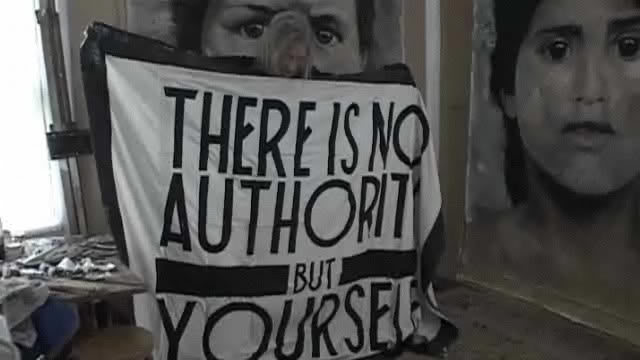
by Shaun Chamberlin | Jan 18, 2010 | All Posts, Cultural stories, Philosophy, Politics, Reviews and recommendations
I just stumbled across this documentary (English with Dutch subtitles) following the story of the 70s/80s punk band Crass. They are still living wholeheartedly by their Do It Yourself ethos and "There is no authority but yourself" philosophy. A recommended watch.
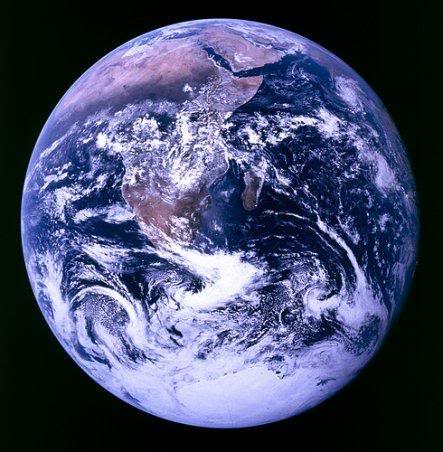
by Shaun Chamberlin | Oct 16, 2009 | All Posts, Cultural stories, Favourite posts, Philosophy, Politics
This is Dark Optimism's first ever guest post. The below article was originally published a week ago by Charles Eisenstein, on the Reality Sandwich web magazine.
It blew me away, exploring the themes of cultural stories and definitions of self that will be familiar to my regular readers, yet bringing to light their deeper reaches in a way that I found both enlightening and exciting. It is longer than my usual contributions, but well worth the effort.
As Charles kindly gave permission for me to reproduce his article here, I will let his words speak for themselves.
---
The medicine man enters the outer vestibule of the sacred healing chamber. He dons the ceremonial vestments and performs the ritual ablutions, purifying himself for the healing ritual that is about to commence. Putting on identical masks, he and his acolytes enter the chamber, to which all others are forbidden entrance. The man they are healing is ready, having been ushered into a deep trance by another shaman using a magical elixir. Within the chamber are the ritual implements, which have themselves been purified, and which none but the initiated are allowed to touch. The medicine man calls for each implement in turn, handed to him by an acolyte. He uses these in a ritual scarification procedure that removes a small part of the ill man's body. When he awakens from the trance, the man is magically healed, though some further ceremonies are required before he is able to leave the grounds of the temple of healing.
To even be allowed to perform this complex healing ritual, the medicine man must go through many years of training that include numerous tests, initiation ordeals, and the mastery of a special esoteric language. Upon completing his training, he is welcomed into the brotherhood of adepts, and his name is altered with a symbolic suffix. He swears a sacred oath and is given a piece of paper inscribed with mystical symbols in an archaic script. Thenceforth, he is treated with honour by his people and accorded all the perquisites of status.
I have just described surgery, as performed by licensed physicians in a modern hospital. All of the elements of ritual are present, yet we do not typically see what goes on as a ritual. "That's not a ritual," we say, "because each of those actions -- the hand washing, the surgical masks, the professional training -- all have a very good, rational reason." Rituals, we think, must tap into something irrational, something magical; if they have any real effects, they are purely psychological in origin. We see rituals as a separate category of action that has been largely eliminated in today's rational, science-based society. Asked for an example of a ritual, we might point to Communion in a Catholic church, or to a sweat lodge ceremony, or to something indigenous people do on the Discovery Channel.
I would like to offer a different conception of ritual that illuminates its continuing ubiquity in today's world, and that suggests a means to deploy ritual as an agent of transformation. Let's play with this definition: a ritual is a prescribed sequence of symbolic actions that draws meaning and power from a "story of the world". In turn, it reinforces and affirms that story.
What, then, is a "story of the world"? By a story I mean a system of meanings and explanations that focuses human intention, assigns roles, coordinates activity, and says what is real. One example is the Story of Money, which assigns meaning to the slips of paper and information bits that comprise our money system. When that story falls apart, such as in Weimar Germany or 1993 Yugoslavia, money becomes nothing more than its physical substrate.
If you can enrol people in a story, then you can create something much bigger than you could build with your own hands. Even something so mundane as building a house requires telling a story that people believe in. The story, "A house will be built here," includes such elements as workers' paychecks, agreements to deliver materials, disbursement schedules, and so on. All of these are symbols. On the physical level, the workers' paychecks are but slips of paper with blobs of ink on them. They have power only because of the story that embeds them, a story that all participants believe in. An alien anthropologist, though, might laugh patronizingly at our concern over these magical talismans with their sacred inscriptions. The same goes for the construction contract, inscribed with the mysterious personal mark of each signatory, and the delivery contract, which we inscribe with row after row of symbols in the superstitious belief that the desired materials they symbolize will actually show up in a truck on the appointed day.
Our lives today are rife with little rituals that sustain the Story of the World in which we have been living. There is nothing unusual about this; it is as it has always been. However, we are entering one of those special moments in history when an old story is coming to an end, to be replaced by a new one. We are emerging from two stories, in fact, two stories that are deeply interlocked. The first is the story of Self and World: we are discrete beings, fundamentally separate from each other and from the objective universe that contains us. The second is the Story of the People: it is the Ascent of Humanity, in which science and technology lift us from a state of dependency on nature to become nature's master, separate and superior. The consummation of this story would be a destiny of space colonization and immortality, in which computers, nanotechnology, and genetic engineering complete our domination of nature and free us from natural limitations. These stories embed other, smaller stories, stories within stories within stories, that include everything in our world that depends on agreements, meanings, and symbols. So money, as I've said, is a story. The government is a story. The American Medical Association is a story. The law is a story. Dates and times are a story. An educational degree is a story. Professional licensure, your credit rating, ownership of any property, the air traffic control system, all are stories.
The rituals that sustain these stories include such things as writing a check, signing a contract, affixing a stamp, waiting in line, voting, filling out a form, writing a report, issuing a grade, affixing a label, signing off on a proposal, asking permission, showing a passport at immigration, friending someone on Facebook, registering a vehicle, making a schedule, using a theatre ticket, filing a lawsuit, or issuing a receipt. I think it is quite easy to see how these actions maintain the web of stories that underlies our society. It is perhaps more difficult to see the ritual nature of such activities as using hand disinfectant, getting a vaccination, dialling a telephone, taking a pill, using a condom, studying for an exam, performing a safety check on an airplane, performing surgery, or planting a garden. These tap into a much deeper level of story, that which underlies what we call physical reality. I won't discuss this level much right now: the metaphysics of symbols, the ontological status of the storyteller, and so on. The laws of physics, that we think are so objective, reflect on a deep level our sense-of-self and the story of What Is that defines self and world. But my purpose right now is not to undo these deep metaphysical stories. For now I will speak mostly of the stories and rituals that create social reality. They will be enough to create a world far more beautiful than we dare imagine today.
As the overarching stories of our civilization draw to their conclusion, the rituals that draw from them and sustain them begin to grow stale. They lose their seamless integration into the logic of our lives, and begin to look, well, like "rituals." Their meaning drains away from them. In previous essays I described how this is happening to our language, provoking a crisis of meaning where words are losing their magic. This is obvious to me every time I download some software or make a purchase on line, and have to click an "I agree" button located underneath a voluminous scrolling window filled with legal text entitled "Terms and Conditions." When I do this, I am supposedly entering into a contract, a concept that draws on ancient sacred ceremonies that involved the swearing of oaths, the letting of blood, and so on. In political and legal philosophy, one often comes across the term "the sanctity of contract." But today we recognize the numerous on-line contracts that we enter into as meaningless formalities, and we do not really feel like we are lying when we affirm, "I have read and agree to all these terms and conditions."
In a similar vein, many of the more important ritual underpinnings of our society are dissolving as well. The ritual incantations of our financial officials, for example, are no longer having the intended effect on the economy. Our medical rituals are becoming less effective as well, a fact we, in a desperate effort to preserve the familiar story, attribute to "superbugs" or "patient noncompliance" or mysterious "genetic factors," when in fact, it is the deep story of the War on Germs and the Conquest of Nature that underlies our medicine that is coming to an end. Something similar is happening in the educational system, where the multitudinous rituals based on the factory paradigm of standardization, "class"-ification, "grading" (as of industrial materials), and the subsumption of the individual to authority, are becoming increasingly ineffectual. Finally, the rituals of politics have become a transparent charade, where elected officials cynically invoke once-sacred principles neither they nor their listeners actually believe in. When they fail to keep their promises, when they enact policies that few of their supporters agree with, we increasingly don't even bother to be disappointed, because the ritual of the campaign promise has become, transparently, nothing but that, a "ritual."
Rituals are seamlessly woven into a story of the world and are, therefore, not even recognized as rituals (e.g., writing a check). When they start turning into "rituals," we know that that story of the world is falling apart. What is happening to the rituals that sustain our civilization today has happened before, leaving impotent relics that we call rituals, but that are actually "rituals" in quotation marks. We might perform them out of nostalgia, a reverence for tradition, or in an attempt to restore the lost sacredness of modern life by borrowing it from another culture, but they will have little effect if we do not believe in a story that embeds them.
Let me offer a few examples of fake rituals, these "rituals in quotation marks." Nearly all of the sweat lodge ceremonies I have been to were replete with fake rituals. Even if they scrupulously followed the prescribed procedures of the native tradition from which they originated, what was once authentic had become fake. That is because we did not truly believe the Story of the World in which the rituals were once embedded. In former times, when a Native American firekeeper invoked the ancestors, he was speaking from a world view in which the ancestors were a present, perhaps a palpable, reality. When he invoked the Four Directions, again he was speaking from a system in which the Four Directions, interconnected with many other stories, were an unquestioned, basic pillar of his understanding of the world, as undoubtedly real and objective to him as protons, neutrons, and electrons are to us. But today we are steeped in a different story, a story in which the ancestors do not participate in the events of our lives, and in which the four directions are merely points on a map. Science defines our basic understanding of what is real, and this reality picture has no room for ancestors, spirits, or Grandmother Spider creating the world. Even if we strive to believe in them, we cannot. A feeling lurks in the background, "This isn't real." Wanting to believe something based on sentiments about respecting traditions or restoring connection to earth or spirit is not the same as actually believing something. Beliefs are not mere vapours in the head, but reveal themselves as actions.
Some months ago, I attended a sweat lodge conducted by a full-blooded Native American. The ceremony was held at the top of a hill, with a station to be purified with sage smoke, another station to hear of the rules for the lodge, and so on. Each ritual was contained inside a larger ritual. But guess what the largest ritual was, the one that contained the whole experience? At the very bottom of the hill, before we could participate, we had to sign a waiver. The entire experience took place within a legal container, and that initial ritual gave primacy to the Story of the Law. I don't think anyone experienced the sweat lodge as transformational; certainly I did not. The only real ritual was the signing of the waiver. Everything else was a "ritual."
To be sure, it is possible for a very very powerful person to hold a group of people in his or her own Story of the World; in other words, to believe it so completely that he can hold that belief on behalf of those who do not believe. I have experienced rituals of that sort as well, but in my life they have been very rare indeed. In the case I just described, I could sense an inauthenticity, a breach in the integrity of the ceremony caused by surrendering its primacy to a story that was alien and hostile to it.
I hope that the reader someday has an opportunity to be in the presence of someone who can invoke the ancestors for real. Such a person will never say, "I would like to invoke the ancestors...," which is two steps removed from a true invocation, or even "I invoke the ancestors, " which is one step removed. He will address them directly, and in his invocation you will hear truth. You will feel the ancestors' presence, and while your mind may doubt your heart will not. That feeling is unmistakable. Today it is only available to us in special moments, but as the old stories collapse and we reenter a world story that has room once again for the ancestors, we will have this experience more and more often. Life is so much richer for it!
Humanity today is transitioning into a new Story of the People, a new Story of Self, and a new Story of the World. I sometimes articulate it as "The connected self living in joyous co-creative partnership with Lover Earth." I explained the paradigm of Lover Earth a little bit in "Money and the Turning of the Age"; no longer do we treat earth as a mother from whom we are entitled to take and take without thought for how much she is capable of giving. Such a relationship is proper for a child. I want my own children to feel free to receive -- it is up to me to determine how much I am able to give. But the relationship to a lover is different: to a lover we desire to give as well as to receive, and we desire to create together, each offering our gifts toward a purpose transcending each of us, so that our union becomes greater than the sum of our individuality. And so, humanity-plus-earth is becoming a new thing; out of our sacred union, a third thing will be born. At the peak of our separation from nature, we fell in love with the earth, a moment marked perhaps by the first satellite photographs of our gorgeous planet.
As for the connected self, this is the self of inter-beingness, the self that realizes, not only as an intellectual concept but as a felt experience, that its very being includes the being of all other creatures. Contrary to the self of Descartes, of Adam Smith, of Darwinian biology, it is untrue that more for me is less for you. It is the self of the Gift, the self that knows that as we do unto others, so we do unto ourselves. And, that as we do unto ourselves, so we are in fact doing unto others. Such as self no longer lives in an objective universe of impersonal forces and generic masses. Its every choice shifts the cosmos, and everything that happens in the cosmos in some way happens within the self too.
Just as the rituals of the old world create and sustain it, so also can we use rituals to create and sustain the new world-generating stories. Rituals occupy a special status among all the actions and beliefs that form a story-matrix. Rituals connect us to what is real within that story. They are among our most powerful tools of reality creation. Therefore, if you would like to participate in the creation of the world of the connected self living in co-creative partnership with Lover Earth, I suggest you enact rituals that empower and create this new story. You can easily recognize them, because from within the new story they are natural and true. They are not "rituals," but an integral part of the new reality. From within it, they make sense. From the perspective of separation they are irrational, but from the perspective of reunion they are not irrational or magical at all. They will, however, feel sacred.
Let's consider a small example: sorting out your garbage for recycling, composting, etc. In the old story, unless you are doing it to avoid a fine, this is quite irrational. What benefit is there to you if the landfill is a few inches lower? In the objective world of force and mass, it simply does not matter if you, one person, recycle or not. It doesn't matter either if you buy lots of plastic packaging, or eat beef from a deforested Brazilian jungle, or save a few gallons of water every day by conserving toilet flushes. In any event, the juggernaut of destruction rolls on. These actions only matter if everyone else does them too, and if they do, then it doesn't even matter if you do them or not. Therefore, it is irrational to do them if they involve any expense or inconvenience, as often they do.
Because they do not make sense from within the old story, we find all kinds of ways to make ourselves do these things anyway. The favourite means is to connect them to our self-image, so that we get to think of ourselves as worthy and good because we recycle, care about the environment, and so on. We can understand them as rituals -- which is what comes to mind naturally as I watch people sort different kinds of cans into different bins -- whose symbolic meaning is "I am doing my part," "I am good," "I am right," or "I am worthy of love." Unfortunately, they actually feed a deeper story, which is something like, "I am not really good, so I must recycle, I must try hard, I must be a good boy or girl." In the case of many environmental activists, these efforts usually accompany a sanctimonious attitude: a conditional approval of the self and a resentment toward those who are less enlightened, less ethical, less conscious. There is little joy to be found in sanctimony.
These same rituals become much more powerful within the new story. Instead of thinking about them in terms of ethics, doing your part, or being good, think of all the irrational things you do as gifts to Lover Earth. When you pay triple for a fair-trade shirt, or do without one; when you plant a tree or help stop a new road; when you make any contribution, no matter how small, to the well-being of the planet and its animals, plants, waters, air, soil, and people, source that act in the spirit of gratitude and offer it in the spirit of a gift. Even if your offering is like the shy, small gift of a teenage boy to his sweetheart, the earth will be touched and grateful. This gratitude is something we can feel. In the old story, the story of impersonal laws and generic masses, the only explanation for this feeling is that we are imagining it, projecting it, anthropomorphizing the earth. From the story of the separate self, how could you feel what another is feeling, and why would you even care? It is irrational. But in the world of the connected self, it is quite to be expected that we can feel what others are feeling, for they are us. Each of us is the sum total of our relationships, and not separate beings having relationships, discrete subjects possessing something separate from our core being called a "relationship."
What is irrational and difficult in the old story becomes easy and natural in the new. The struggle to be good is over. That struggle, that war against the self, is based on a conception of a self that is bad: the Economic Man seeking to maximize rational self-interest, the selfish gene seeking to maximize reproductive self-interest. Our civilization is built upon that self; hence a penal system, a religious system, an educational system designed to overcome our natural selfishness through fear, guilt, and shame. Do you, my friend, feel guilty for not living more sustainably? For your complicity in a culture that is destroying the earth? Do you wield that guilt over yourself and others in order to compel better behaviour? If you do, then the rituals of recycling and reducing will actually strengthen the old story of which that guilt is part.
Instead, I invite you to embed these rituals in the new story, and in turn to draw upon the new story in creating new rituals. From the old story, it is stupid for me to wash used pieces of plastic wrap and stick them to the refrigerator to reuse. How much oil or landfill space am I going to save that way? Not very much! But I don't think of it that way at all. I am not doing this to be good or to do my part. I am having a personal relationship with that piece of plastic wrap, and with all the beings that created it, and with all of its relations. When I bury my compost instead of putting it in the trash can, I feel the happiness of those apple cores at returning to the ground, and the happiness of the earthworms who will turn them into soil, and of the soil that will receive the worm castings. Entering the new world means shedding any pretence that you or I are better, more ethical, more moral, or more spiritual than anyone else, and allowing our true selfishness -- the selfishness of the connected self -- to blossom. It is an opening to more pleasure, a bigger trusting of desire, not a conquest of pleasure and desire. And if the joy I share with the apple core is my projection, if the story of the connected self is my own comforting illusion to assuage the loneliness of living in a cold hard universe of force and mass, then so be it!
Many of the rituals of the old world can be embedded in the new. In addition to the above, such things as writing a check can be done in a new spirit of gratitude and gifting rather than payment. Other of the old world rituals are fast becoming obsolete, however, and we want no part of them. I, for example, cannot bear to write a resume when one is requested for a conference I've been invited to speak at. Nor do I participate in many of the rituals of the medical system or school system. Other rituals that feel wrong to me I still participate in, because I am afraid or not ready to exit that part of the old world. I still file an income tax return, for instance. Each of us, as we pioneer in our own way our unique part in the story of the connected self on Lover Earth, is moved to leave behind different of the old rituals.
Rituals bridge the distinction between symbol and reality: they don't just mean something, they are something. They are actions in themselves. When tribal peoples conducted a ritual re-enactment of the creation of the universe, they weren't just narrating or representing that creation, they were actually participating in it. For them, cosmogenesis wasn't a discrete event at the beginning of linear time, but an ongoing event taking place outside of time and diffracted onto it. The ritual didn't represent the creation of the world; it was the creation of the world. So also, the world-creating rituals we enact today must be real to us. Do not invoke the Four Directions or the ancestors unless they are a living reality to you. Otherwise you will just be "playing Injun'" and reinforcing the story behind the phenomenon of cultural appropriation. Rituals must not be less real than any other action; they must be more real. Rituals are actions that are infused with sacredness, connecting us to what is real, true, and important. Perhaps one day, a fully healed humanity will no longer distinguish something called a ritual, because all actions will be sacred. Until then, rituals serve to remind us of the sacred world-creating power of all we do, just as prayers can remind us of the sacredness of all speech, and holy sites can remind us of the sacredness of all the earth.
Make your rituals real. Your gifts to Lover Earth and to other parts of your connected self are not just symbols of love, they are love. I am not saying to be content with reusing your plastic wrap. Momentous and heroic actions, that save a forest or free a nation, come from our enactment of the roles of a new story too. They are always irrational from within the story of separation. No one ever did anything great by fighting herself and trying hard to be good. No will is strong enough. But when we give ourselves to a great story, it carries us towards acts which, from outside it, look brave and magnanimous. As we release ourselves into the story of the connected self and Lover Earth, as that story becomes real to us and we believe it in every cell, we become capable of miracles: things which were impossible from the old story, but possible from the new.
The institutions built upon the stories of the Ascent of Humanity and the separate self are falling apart around us. I believe that everyone knows in his or her heart that we are indeed connected, interdependent for our very being, and that we are coming into co-creative partnership with a planet we are falling madly in love with. You may know it and not quite believe it yet. My job is to help you believe what you already know. But even if you don't fully believe it now, no matter. The old stories cannot hold much longer. Like it or not, we are being thrust into the new. But why wait? The rituals that connect us to the reality of Reunion are already coalescing, forming new systems of meaning, institutions, forms of social interaction, conceptual vocabularies, exchange infrastructure, and the myriad human roles of the new stories. Paradigms as diverse as permaculture, energy healing, nonviolent communication, P2P economics, alternative currency, and thousands more all draw from and contribute to the new Story of the People, Story of the World, and Story of Self. As we work, each according to our gifts, to create them, we make it all the easier for the heart's knowing of a more beautiful world to blossom into belief and then into reality for all of us. That new world is a place we can only enter together. The reality of the connected self requires it.
~ by Charles Eisenstein, originally posted at Reality Sandwich
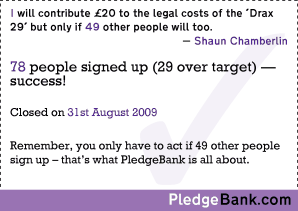
by Shaun Chamberlin | Jul 3, 2009 | All Posts, Climate Change, Cultural stories, Favourite posts, Philosophy, Politics
A week after NASA's leading climate scientist Dr. James Hansen, actress Darryl Hannah and others crossed the line into illegal direct action in a desperate attempt to prevent coal mining and burning from ending our hopes of retaining a hospitable climate, twenty-nine protesters are standing trial here in England for a similar action last year.
The 'Drax 29' admit stopping (safely) a coal train two miles outside the Drax power station in an attempt to prevent the deaths already being caused by climate change. Nonetheless they have entered a "Not Guilty" plea against the charge of 'Obstructing the Railway' (which carries a maximum two year prison sentence). They are defending themselves in court, and after reading their inspiring closing statement justifying this position to the jury, I felt moved to create the pledge above. You can read their defence yourself in The Guardian here, or it is reproduced in full below:
--
Members of the jury.
I'm going to try to summarise why we feel that we are not guilty, why we feel that what we did was right, despite the very proper laws against obstructing trains, why we feel that it was the wrong decision of the Crown Prosecution Service to prosecute us in this case, and why we don't feel that we are guilty of a crime.
I want to start by responding to your request for clarification yesterday about "lawful excuse". His honour may say [in his summing up] that it's true that there are ways in law to make space for circumstances, to allow a bigger picture to be considered.
These ways can have different names for different offences — so for example "lawful excuse", which you asked about yesterday, applies only to the charge of criminal damage. For example, last September, a jury in Kent found six protesters not guilty of committing £30,000 worth of criminal damage to Kingsnorth coal-fired power station, since the group were acting to prevent a greater crime. Those on trial did not disagree that criminal damage is a crime, just that, in certain circumstances, it may be necessary and proportionate to cause some damage to prevent a great crime. That jury agreed.
His honour may explain that there is a legal defence of "necessity", that applies to most laws, and that it was on the basis of "necessity" — the fact that we believed our actions were going to save lives and that we had to act — that we prepared a legal defence before this trial. Along with many legal professionals we were very disappointed by his honour's decision prior to the trial that this defence was not available to us in law. Nonetheless we decided not to appeal against it. We felt that you the jury would be free to decide on the facts of a case as you find them - and not just the ones his honour tells you are relevant.
It's up to you to decide whether what we did was necessary. I would like to emphasise to you that we believed and we still believe that it was urgently necessary to do what we did, and proportionate to the scale of the problem, that the consequences of that train taking coal into Drax are so serious that any reasonable person would understand our reasons for stopping it. To help explain why we were so sure of the links between Drax's activities and deaths around the world we had expert witnesses lined up to talk to you about the immediate and ongoing harm that Drax's emissions cause. However from what evidence we have been able to get across to you, with his honour's indulgence, we hope that you can see that these facts speak for themselves, and our actions, though harmful, were indeed necessary to try to stop a greater harm. And if you agree with that then you still have a legal right – as the jury - to find us not guilty.
You've heard it said already I think, that the judge decides about the law, but the jury decide about the facts. What does that mean? It means you the jury can decide as you see fit. You the jury have a constitutional right to follow your own judgement and not necessarily follow the judge's directions to find us guilty. In other words, you get to make the final decision. In law this principle is called the jury's power of nullification, and it's been a right that has been regularly used over the years when juries have felt the law has been applied harshly, or inappropriately, or unjustly, or incorrectly.
Perhaps I can explain this with a quote from a very senior judge, Lord Denning. He said:
"This principle was established as long ago as 1670 in a celebrated case of the Quakers, William Penn and William Mead. All that they had done was to preach in London on a Sunday afternoon. They were charged with causing an unlawful and tumultuous assembly there. The judge directed the jury to find the Quakers guilty, but they refused. The Jury said Penn was guilty of preaching, but not of unlawful assembly. The Judge refused to accept this verdict. He threatened them with all sorts of pains and punishments. He kept them 'all night without meat, drink, fire, or other accommodation: they had not so much as a chamber pot, though desired'. They still refused to find the Quakers guilty of an unlawful assembly. He kept them another night and still they refused. He then commanded each to answer to his name and give his verdict separately. Each gave his verdict 'Not Guilty'. For this the judge fined them 40 marks apiece and cast them into prison until it was paid. One of them Edward Bushell, thereupon brought his (case) before the Court of the King's Bench. It was there held that no judge had any right to imprison a juryman for finding against his direction on a point of law; for the judge could never direct what the law was without knowing the facts, and of the facts the jury were the sole judge. The jury were thereupon set free."
This was affirmed as recently as 2005, in relation to the case of Wang, where a committee of Law Lords in the highest court in the land, the House of Lords, concluded that: "there are no circumstances in which a judge is entitled to direct a jury to return a verdict of guilty". So you do have that right to decide for yourselves. And unlike in 1670, his honour won't be able to fine you, or put you in prison for making what he sees as the wrong decision.
There have been many cases over the years where juries have decided, on reflecting more broadly, to find people not guilty despite directions from the judge. For example, the case of Zelter and others who were accused of damage to an aircraft about to be used for bombing civilians. In all of these and others the judge said that the defendants admitted the offence and so must be found guilty. But the jury chose to look outside the limited view of the court room, and to find them not guilty.
The freedom that you have is what enables the law, where necessary, to move forward. It is what allows you to look beyond the confines of this court to the wider world, and to make a judgement based not just on law, but to make a judgement based on justice. Justice is the force that underpins and breathes life into the law, and it is your role as the jury to see that justice as you see it is done.
We all know that times change, and what was acceptable in one era may not be acceptable in another. You have heard of how it was once legal to own other people, how it was illegal for women to vote. Well one way or another we are going to have to stop burning coal and move on from the fossil fuel era. And that means that the law will eventually have to change and acknowledge the harm that carbon emissions do to all of us, by making them illegal. The only question is whether the law will catch up in time for there to be anything left to protect.
We are not trying to tell you how to decide. We are only trying to say that it is up to you, and we are grateful for that.
I want you to think back to that situation of there being a person on the tracks ahead of that train going on its way to Drax. Members of the Jury, it may sound like a strange thing to say but in truth there is a person on the branch line to Drax. The prosecution have not challenged the facts we presented to you on oath about the consequences of burning coal at Drax. 180 human lives lost every year, species lost forever. There is a direct, unequivocal, proven link between the emissions of carbon dioxide at this power station and the appalling consequences of climate change. That many of those consequences impact on the poor of other nations or people in Hull we don't know and should not in any way negate the reality of this suffering. We got on that train to stop those emissions, because all other methods in our democracy were failing. Just because we don't know the name of the person on the tracks or where they live or the exact time and day of their dying, does not in our view mean they are less worthy of protection.
We don't dispute that there's a law against obstructing trains. We don't dispute that obstructing trains is a crime and should continue to be a crime. We just argue that in this case, we should not be found guilty of a crime for trying to block this train on its way to Drax.
On Tuesday the prosecution argued that what we did was quite simply a crime, and as a result we should be found guilty. They were trying to suggest that if you find us not guilty, the whole world would fall apart. We argue that the more likely route to the whole world falling apart is if we continue burning coal in the enormous quantities that it is being burnt at Drax.
His honour may say that we have been telling you stories, that we are trying to introduce emotions into the trial to distort the evidence. But we have been telling you the facts. If those facts move you, that's because they are moving, and they are what moved us to do what we did.
We are happy to be judged by you, the jury.
Thank you for taking the time to listen to us.
--
See full details of the pledge I have created in support of the Drax 29 - and the option to sign - by clicking the image below.

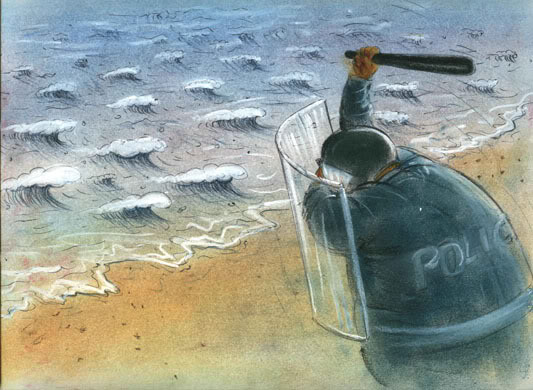

 Maria Elvorith, ‘Red wine, Lipstick and the World in my hand’, 2009
Maria Elvorith, ‘Red wine, Lipstick and the World in my hand’, 2009 Sir Edwin Landseer, ‘Man proposes, God disposes’ 1864
Sir Edwin Landseer, ‘Man proposes, God disposes’ 1864 Photograph by Iain D. Williams, Canada, Nov 2009
---
Photograph by Iain D. Williams, Canada, Nov 2009
---



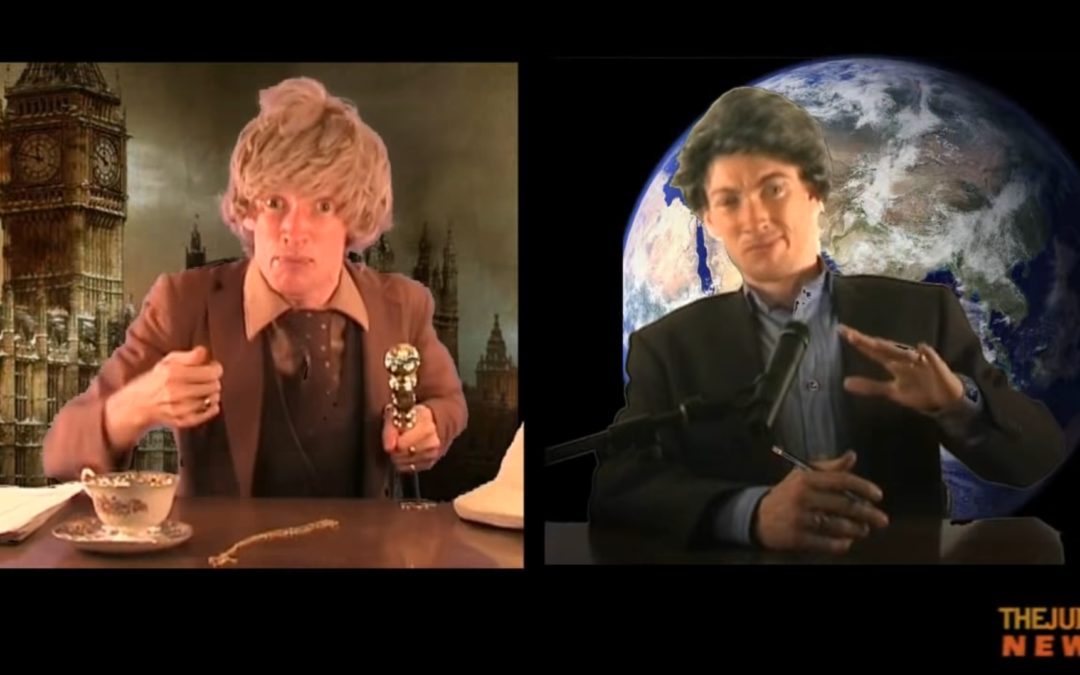




Recent Comments